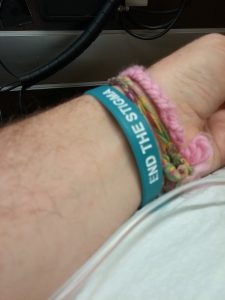Sometimes, Hollywood gets it right. There are a few films and television shows that have nailed the patient or caregiver experience quite well. More often than not, however, Hollywood uses Cancer (in the broadest sense) whenever it needs to cue a terminal illness to create sympathy without the need for exposition, or force sentimentality when character development and theme are not enough to dredge up a true emotional response.
This problem is far from new. Hollywood has long used a heavy hand to manipulate the audience. And shorthand is often required to tell a story in the confines of two hours or less. Rarely does cancer show up in a motion picture as a fully formed subject, driving the plot on its own or acting as a subplot with any sense of realism or sincerity. It is an issue that has bothered me since I began my own treatment and stumbled into a series of movies in which cancer was a mere tool for pushing emotional buttons, sometimes callously, frequently gratuitously. Warning: spoiler alert — I am probably going to ruin a few surprise plotlines in the coming paragraphs. Continue reading Hollywood and Cancer, Honesty vs a Lazy Sentimental Tool




